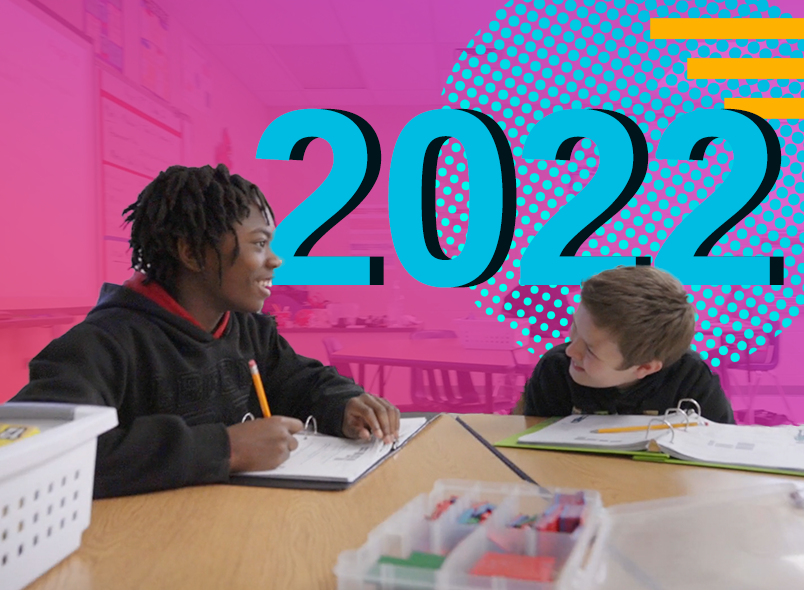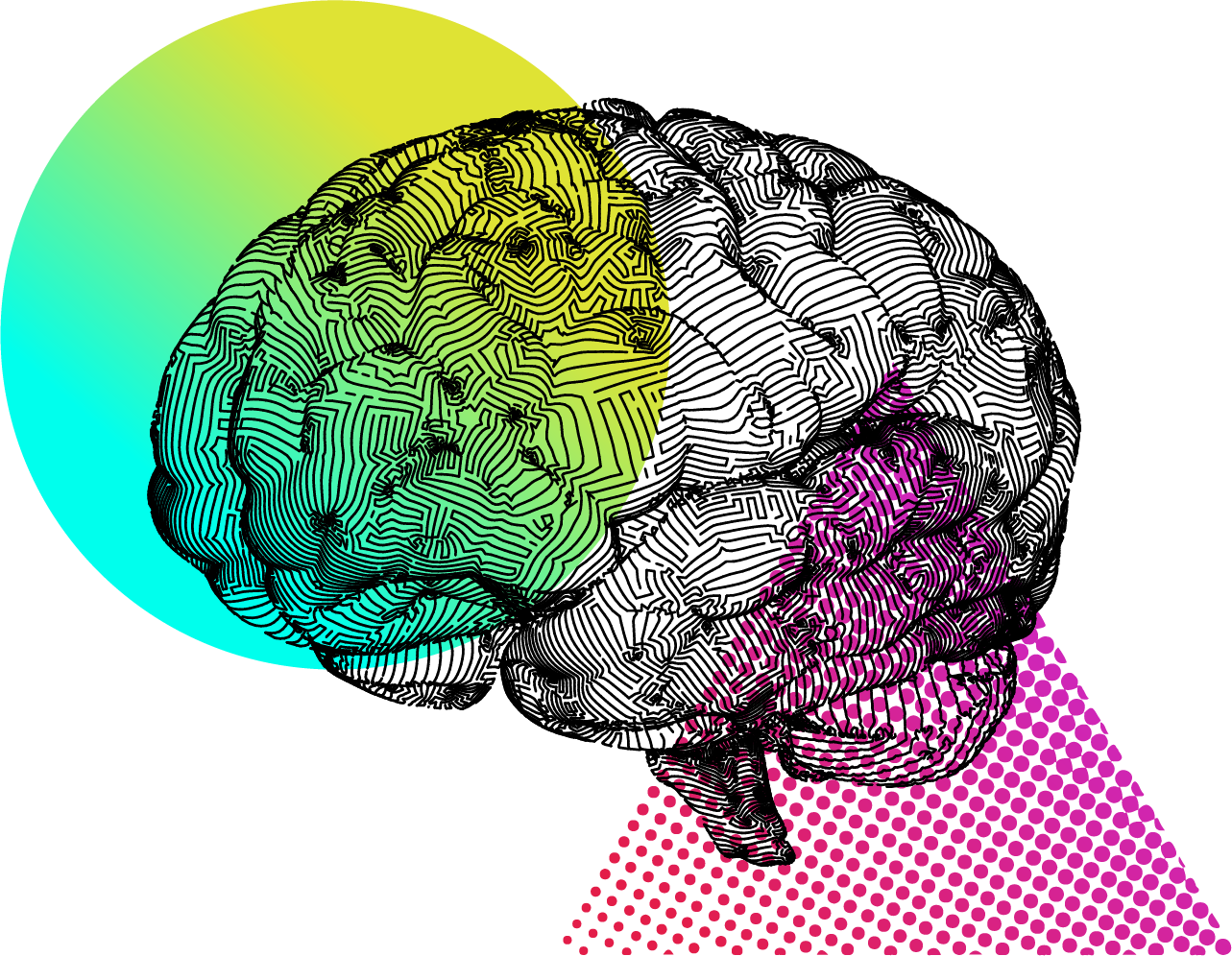What can you expect in education this year?
World events over the last two years have driven changes in educational practices as never before. Technology integration is at an all-time high, and everyone is working hard to determine how students truly learn best—and how we can assure that they really are learning, whether at school or home.

What will the next year bring?
Let’s look at five educational trends that will continue in 2022.
1. Student Agency
As digital natives, our students have always had information within reach, and they can (and often prefer) to search for it independently. So, do we, as teachers, continue with a top-down instructional approach, or do we help our students take ownership of their own learning while also teaching them how to evaluate online sources properly?
Many educators are moving away from teacher-driven lessons and helping students have more voice and choice in what they learn, putting teachers in a more facilitative role. This environment leans more toward collaborative learning and gives teachers the flexibility they need to differentiate more easily.
Is this going to be an easy transition for everyone? Probably not, but it’s worth the work. The ability to be a self-starter and to stay motivated is essential not only in school but also in the workforce, especially if the work-from-home trend continues. Teachers who can effectively help students understand how they learn best, as well as how to find, evaluate, and understand information, will be essential in future classrooms.
2. Game-Based Learning
The first thing to note is that game-based learning is different from gamification.
Game-based learning is an approach to learning that purposefully applies gaming principles to help students achieve specific learning objectives.
Gamification is the application of gaming principles to traditional learning methods to increase student engagement.
Gamification by itself can play a useful role in learning, but game-based learning makes online learning tools even more powerful. Research suggests that game-based learning can be effective at increasing learning by helping students strategize, build problem-solving skills, and rethink their previous attempts at a task to improve future strategies. Expect to see game-based learning spread to more classrooms in 2022!

3. AI-Driven Learning
Artificial intelligence also was part of our 2021 list of education trends, and it continues as a major trend. AI is not about replacing teachers but about allowing for data-driven decisions that impact the classroom and students. With COVID-related reductions in teaching staff, AI teaching assistants and automated grading systems are especially welcomed in most schools. Why not automate the tedious time-killing tasks so teachers can do what they do best: connecting with students and facilitating learning?
Digital learning tools, such as the Fast ForWord® reading and language program and the 1-to-1 tutoring software MATHia, incorporate artificial intelligence that adapts to individual students’ responses to create personalized learning paths for every student. Reports are then created to help drive instruction based on students’ strengths and weaknesses.
Another important job of AI is in the area of cybersecurity. In recent years, school districts have been brought to their knees by hackers taking control of their systems. Not only was learning disrupted but every other system (including payroll!) was compromised by these invasions. Artificial intelligence helps systems recognize patterns so district security systems learn from past compromising situations and improve incident response times and security plans.
4. Science of Learning

We’ve come to realize that there is no “one size fits all” in education and that there is value in appreciating different methodologies and strategies in learning. Cognitive scientists have a deeper understanding of which learning experiences are more impactful on the brain, but, historically, their research hasn’t been fully considered in education. Fortunately, more of us are starting to pay attention!
The science of learning is the body of research about how we learn, as studied by scientists in fields ranging from neuroscience to psychology to computer science. The aim of this research is to optimize learning for all students, and educators are increasingly interested in learning more about it.
If you’re looking for a good book on the cognitive science of how we learn, check out these titles:
Any given classroom includes a variety of brains in different places developmentally, but these brains are still on similar paths that lead to the same acquisition of skills. As teachers, we have to understand how the brain is learning if we are to help every student reach their full potential. Universally applying the science of learning would be a game-changer for students and teachers alike.
5. Online Learning
While online learning was the bane of many parents’ and teachers’ existence in the first months of the pandemic, it now appears to be here to stay. We had to change the way we taught and develop new strategies for student engagement as government agencies and various companies worked frantically to provide digital content that was aligned to state standards.
But now that we’re more than two years into online learning, some are seeing positives in what initially seemed to be a negative. For some, online learning was a welcomed relief because it could remove barriers to learning such as time constraints, distractions in the classroom, and bullying.

Many educators are embracing the option of recording a lesson as they are teaching it virtually so students can watch it again (or for the first time!) later. Recorded lessons allow struggling students to have more in-depth or slower-paced instruction while advanced students can be challenged to move forward on their own.
Don’t Forget
I know, there’s a lot to be overwhelmed by these days. But there may also be a part of you that is excited about all the possibilities of a new year. Try not to focus on all the things you have to do; instead, don’t forget what—and who—we’re building as we bring our best selves to the classroom each and every day.
As Tara Westover, author of Educated, said, “I don’t think education is so much about making a living; it's about making a person.”
You, fellow educators, are awesome, and remember that you are in the business of changing brains every day!
Thanks for reading our top 2022 education trends. Now see what we predict will be the hottest educational trends of 2023.

Cory Armes has eighteen years’ experience in K-12 education as a general and special education teacher and educational diagnostician, specializing in working with students with learning disabilities and behavioral issues. She has worked in Texas throughout her career and is glad to be on the ELAR team at Carnegie Learning.
Explore more related to this author